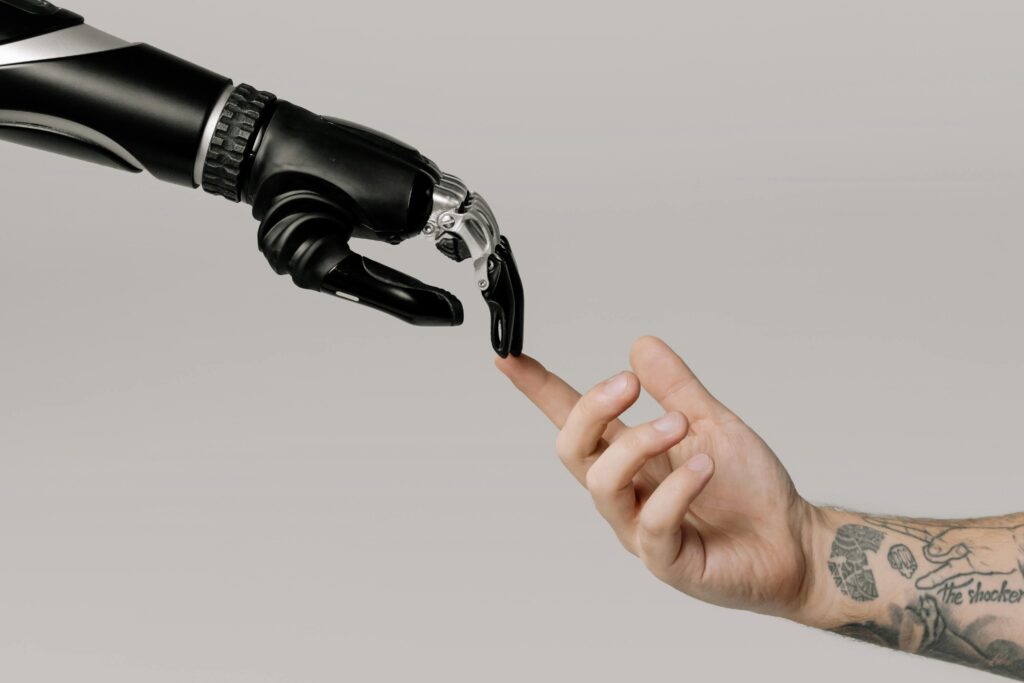AI no longer serves as a tool for entrepreneurs because it is now positioned as an essential founding team member. It supports activities across validation through prototyping alongside marketing and customer support. AI-first enterprises have created an innovative era for startup development through automated software code creation, while founders now have equally strong engineering and IT leadership roles.
The rapid growth of accessible AI models, automated business logic tools, and quick product-market testing enables this shift. Modern founders spend less time on programming code to create a new venture because their main task is finding the perfect AI capabilities to integrate into their product. Hyper-efficient startups that combine solo operators or small teams transform rapidly into agile, lean entities that build rapidly compared to even five-year-old production methods.
The development of AI-first startup businesses exemplifies a key pattern that mirrors the market instability observed in financial sectors such as cryptocurrency. Investors who analyze the BTC price chart for market dynamics and founders and VCs monitor AI innovations to predict future startup ecosystem directions.
What Defines an AI-First Startup?
AI-first startups align their identity with conventional tech startups because artificial intelligence is their baseline operational component instead of functioning as a supplemental addition. The founders built these companies based on the core principle that AI systems will perform vital operations throughout the organization. The foundation of their business operations emerges from AI at the initial developmental stage.
The founding process now involves AI tools that produce code, design, and generate content while building client networks. AI technology allows founders to create public launch prototypes from seed funding that generally take months to develop manually. AI tools help developers create basic code while sales departments employ AI to produce sales opportunities through generated materials. AI chatbots’ automation and assistance now substitute support functions.
For instance, Startup operations focus on workflows that allow AI systems to handle substantial labor, reaching up to 90 percent of tasks. Efficiency, together with automation, closed development, and customer feedback cycles, is the main objective.
The New Role of the Founder
In the age of artificial intelligence, founders now play a guiding role instead of an operational one. Entrepreneurs must eliminate full responsibilities for engineering, marketing, and sales tasks because these roles are separate from modern business management needs.
Organization leaders oversee AI-based team extensions, which enable them to operate effectively. Today’s founding leaders must develop abilities in real-time systems thinking and prompt engineering methods to make choices by analyzing customer reactions and performance data.
The new emerging entrepreneurship business model consists of startup founders who launch organizations independently with AI as their company team members. Startups utilize automatic agents to conduct their entire operational process, from evaluation experiments to creating financial updates. AI fast processing speed enables these founders to change their business direction at an unmatched speed.
Why VCs Are Paying Attention
Venture capital investors are becoming increasingly interested in this business trend as they adapt their conventional investment approach. Recently, venture capitalists have shown a preference for backing individuals who create minimal viable products within one week while maintaining live user networks and machine learning feedback mechanisms instead of traditional multi-entrepreneurship teams and 18-month project periods.
Ecosystems of Investments have become shorter in duration yet occur with increased frequency. Founders at the idea stage acquire backing from micro-funds because their products emerged from AI-coded software or user acquisition applications. These startups avoid talent recruitment costs by utilizing AI tools at affordable rates, which enables specific growth strategies that generate revenue development much faster.
The associated threats also differ in this context. The development of AI-first startups often coincides with difficulties involving user data security, biased learning models, and speedily available AI platform capabilities. These startups deliver high operational results at minimal resource costs, which results in either accelerated business exits or resilient small-scale businesses.
Industries Being Disrupted by AI-First Startups
New businesses that start by focusing on artificial intelligence disrupt operations at every industry level—the fintech industry benefits from developing robot-built advisors and automated tax provision modules. Startup companies create diagnostic tools and administrative assistants for healthcare professionals in the medical sector. AI systems produce articles together with videos and complete 3D models according to demand requirements.
New business opportunities from AI-native systems show exceptional potential in gaming, education and customer service domains. These domains enable startup companies to develop adaptive personalization software to launch immersive experiences in real time. AI-based tools found in video games and education technology platforms are not mere novelties because they define user expectations about future products.
The world witnesses similar trends toward decentralized digital economies whose operations are quick and fluid. Crypto markets display similar behaviors to price charts demonstrating BTC signals because these industries rapidly adjust their positions with AI signals and market reaction indicators and product popularity metrics.
Challenges Facing AI-First Startups
As much as AI-first startups receive praise, they encounter significant obstacles to overcome in their development. There remains confusion around intellectual property rights when an AI system creates the resulting final product. Data governance proves challenging because customer data must be used for model training. Differentiation is the most significant challenge since all startups implement standard basic models, leaving them indistinguishable.
Founders must create individualization in their service delivery systems built from commonplace infrastructure. Startups achieving success with generated AI tools will prioritize adding proprietary information based on their domain expertise along with incorporating their target community within their AI workflows.
The Future Is Automated, but Human-Directed
Artificial intelligence startup initiatives will expand their presence because they show no sign of disappearing. Human creativity, decision-making, ethical conduct, and automation remain the leading forces that guide these systems. These organizations demonstrate larger economic trends toward future work modes and value generation, along with the emerging definition of how companies build for 2025.
Startups powered by bots have evolved from extraordinary incidents to represent the standard operating model of modern business operations. Just as a savvy investor examines BTC price charts during price spikes, there are early opportunities that the most perceptive investors exploit, thereby achieving the best outcomes.











